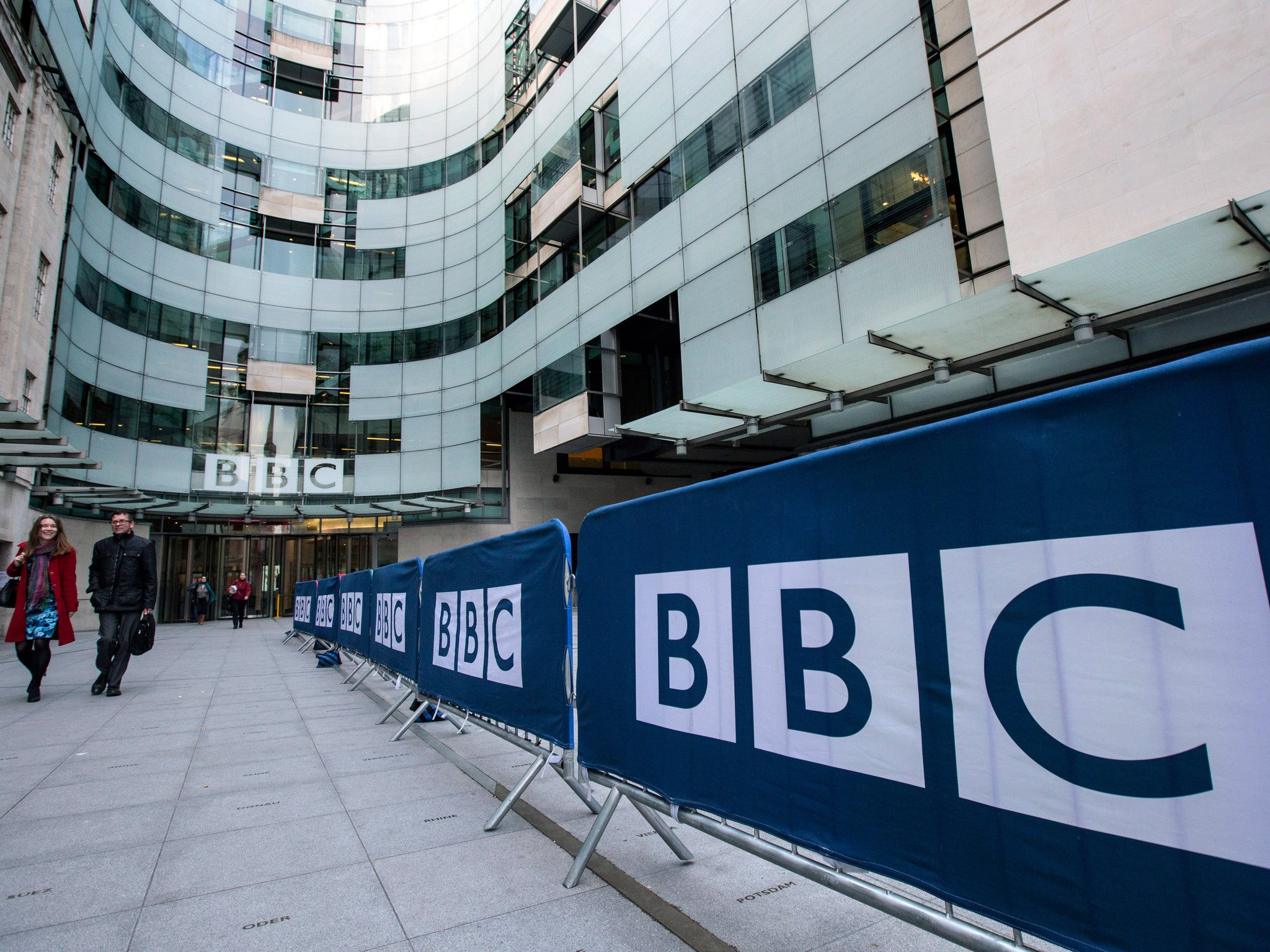BBC: I’m proud of having a broadcaster that’s the envy of the world
Sometimes we have to fight for the things we love

Your support helps us to tell the story
From reproductive rights to climate change to Big Tech, The Independent is on the ground when the story is developing. Whether it's investigating the financials of Elon Musk's pro-Trump PAC or producing our latest documentary, 'The A Word', which shines a light on the American women fighting for reproductive rights, we know how important it is to parse out the facts from the messaging.
At such a critical moment in US history, we need reporters on the ground. Your donation allows us to keep sending journalists to speak to both sides of the story.
The Independent is trusted by Americans across the entire political spectrum. And unlike many other quality news outlets, we choose not to lock Americans out of our reporting and analysis with paywalls. We believe quality journalism should be available to everyone, paid for by those who can afford it.
Your support makes all the difference.On the day the government is due to deliver its green paper on the future, nobody can be in any serious doubt that the Corporation is under siege. It started the day after the election when the Daily Express headline made it clear that the BBC “must now pay the price for its blatant anti-Conservative bias”.
Since then we have seen constant anti-BBC briefing by the government. First the Chancellor raided the BBC coffers to pay for the Government policy of free television licences for the over 75s in exchange for the promise of a possible CPI increase in the licence fee from 2017. Last weekend we learnt that the Prime Minister intends to use the Charter renewal process to stop the BBC making popular Saturday night entertainment shows like The Voice and that the CPI increase may well not go ahead. So, far from being the consensual politician we had grown used to in the Select Committee, John Whittingdale is revealing himself to be the true ideological son of Tebbit and Thatcher.
Yet the BBC reaches 97 per cent of the population at least once a week. It is an intrinsic aspect of our modern life, and 6 out of 10 of us believe its main purpose should be to entertain. So let’s be clear, if the aim of Cameron, Osborne and Whittingdale is to cut the BBC down to size, they do not carry the nation with them in this particular bully crusade.
At key moments the BBC has helped define us as a nation – and, I would argue, as a united nation. Think of the bombings in London. Or the week that Princess Diana died. Or the General Election. Or the Olympics. In times of sorrow and of celebration it can be the glue that holds us together and I for one think that is a public service role.
The British creative industries work because it has the BBC at its heart. The BBC doesn’t harm the wider industry, it fosters it; it creates a competition for quality – surely a laudable thing for free market Tories? – it develops skills and talent in front of and beyond the camera that other broadcasters often end up using. The £3.7bn from the licence fee is the largest investment we make in the arts.
There are those who argue that the BBC is too big. ‘Imperial’ was the word used by George Osborne. I guess he meant ‘too big for its boots’. That seems to be the Prime Minister’s view too. They say that the BBC should limit its ambition. But I’m proud of having a world class broadcaster that’s the envy of the world; why a Conservative government would want to yet further cut our soft power across the world or diminish a British institution is beyond me.
We do need reform at the BBC. It should make sensible efficiency savings, cut waste, do more for young audiences, monitor top salaries, cut unnecessary management costs and enhance its on-screen diversity. It needs a new governance structure too as it has become increasingly clear that the BBC trust is simply not fit for purpose. So the government’s green paper will be welcome if it opens a sensible debate on how to strengthen the BBC and prepare it for a fully digital future. My fear though is that if the Government’s war on Aunty is successful, the BBC will be a national irrelevance by 2027. Sometimes we have to fight for the things we love; and make no mistake, the battle for the BBC is well and truly on.
Join our commenting forum
Join thought-provoking conversations, follow other Independent readers and see their replies
Comments